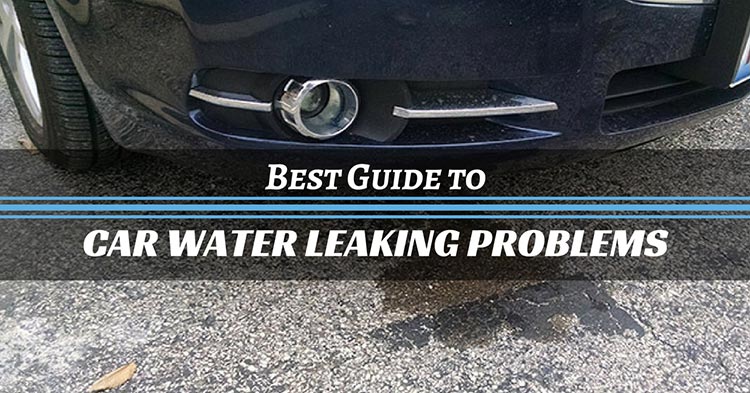
Best Guide to Car Water Leaking Problems
A simple online search of “My car is leaking water” in any search engine would give varied answers, starting from the simplest to the most outrageous. Online car forums can be some of the most helpful tools in solving car problems and they can also be very misleading as well.
More...
While the importance of online car forums cannot be understated, since people share their car problems and possible solutions, sometimes cars don’t have the same diagnosis to the same problems. A good example is water leaking underneath your car.
When You Spot Water Underneath Your Car
You might have parked your car outside a food store or even on your home parking slot and when you are just about to drive off, you spot drops of water from underneath your car.
Worry not, because the problem might range from a minor cap problem to a more significant problem. However, the most important thing is to keep calm as you try to arrest the cause of the problem and you should not rush into making conclusions.
First of all, you have to ascertain that whatever is leaking is actually water and not any other fluid present in a car. In order to do this, take a piece of white paper and place it underneath the car where the leak is coming from.
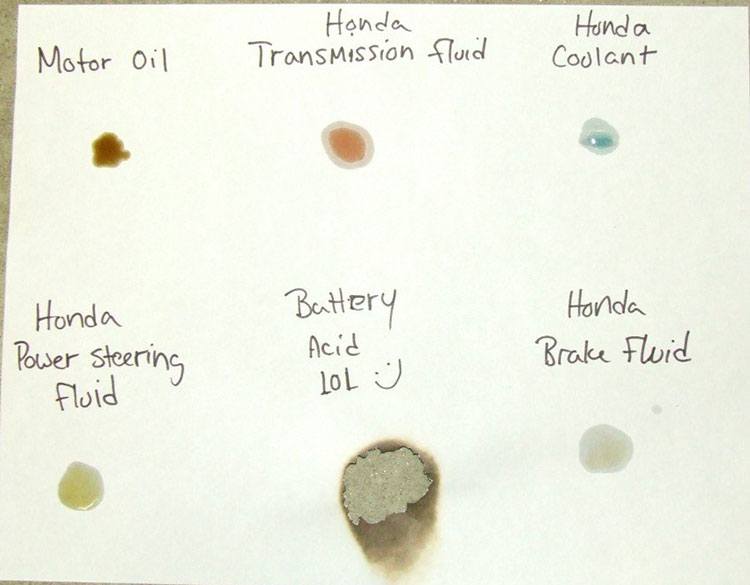
Via axleaddict.com
Wait for a drop of the liquid to fall on the paper and then inspect the color of the liquid. As you already know, water should be clear while any other liquid such as engine oil, acid or the coolant should be colored.
Sometimes the water might be a little bit stained as it comes into contact with other contaminants before dropping to the ground, and so you should be wary of this. After identifying the liquid and you are quite sure that it is water, then you can now move to identify the causes.
What Causes Your Car Water Leaking
Water leaks in a car can only be as a result of faulty parts that use water or water can be found in or on them. The main places where water is used or can be found in a car are
1. The Winscreen Washer System
There is a small water reservoir at the engine compartment of your car that contains water for cleaning the windscreen. A leak can occur in this system either when the reservoir is leaking or one of the pipes carrying water to the windscreen is burst and leaking.
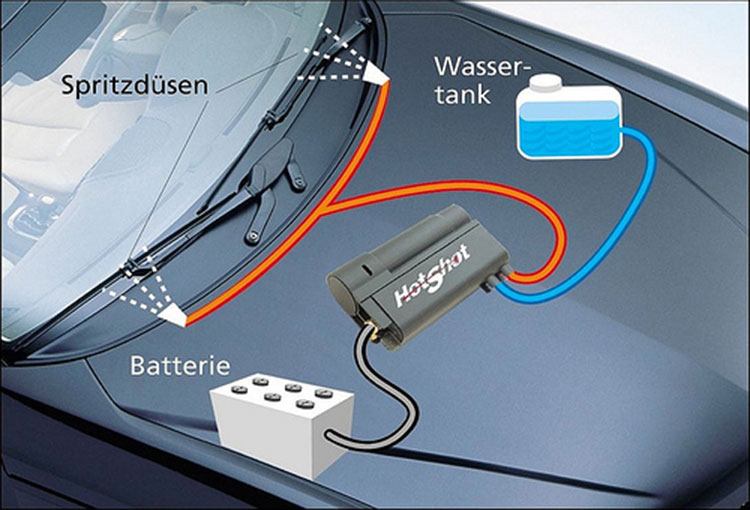
However, a burst pipe will only leak water when you switch windscreen water on and not when the car is sitting idle.
If it’s the reservoir leaking, then check whether the cap is locked tight or if the reservoir is broken and has an opening. You can fill up the reservoir and check whether the water levels would drop without using the windscreen washer water.
2. Engine Cooling System
The engine operates at very high temperatures and needs to be cooled in order to protect it from damage and excessive wear.
Engines can be air-cooled or water-cooled but cars are mostly water cooled since the operating temperature are quite high. Modern cars do not use water as a coolant but there are special anti-freeze coolants that are normally used.
Coolants are normally colored and can be either green, blue or red. There are also coolants which are mixed with water in the system and the result is normally a pale liquid which might be hard to identify whether its water or not.
Nonetheless, water is still used as a coolant especially in hot regions such as around the equator and water leaks from the engine cooling system is still a possibility.
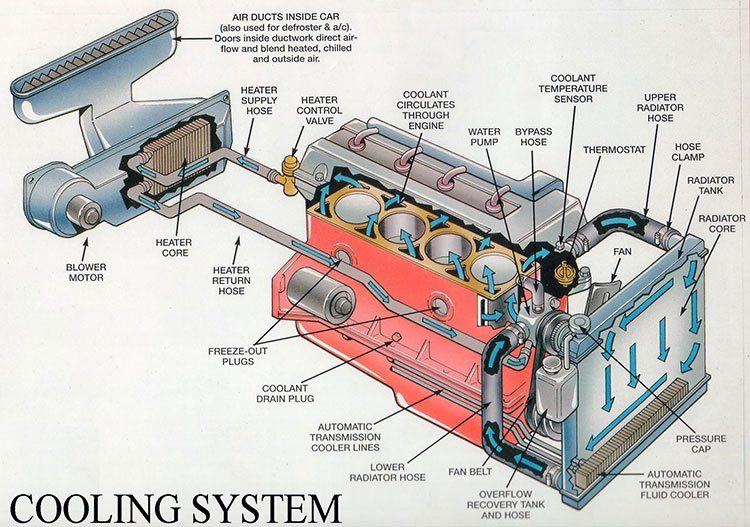
Via dakotak.com
The engine cooling system comprises of a radiator which serves as a reservoir, hoses which carry the coolant from the radiator to the engine block chambers and back, as well as a water pump which helps in circulating the water.
When you suspect that water is leaking from the engine cooling system you, first of all, wait for the engine to totally cool down and ensure that the radiator cap is totally cold before opening it to check the water levels. If the water levels are low, then check for leaks from possibly a punctured radiator or hose pipe.
The water pump might also be broken and you will notice water dripping down the engine compartment below the pulleys and belts. If this is so, contact your nearest dealer as soon as possible as running the car this way is fatal to the engine.
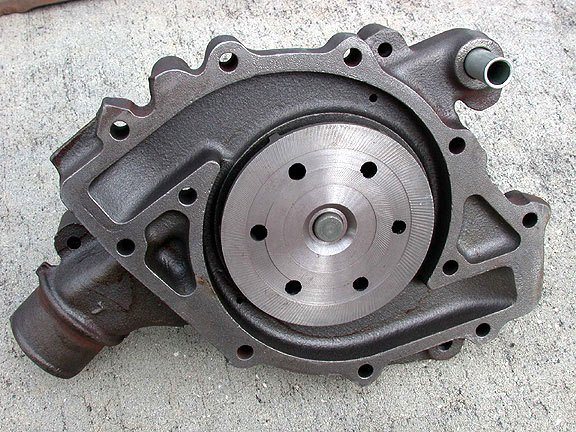
Via ehow.com
There is also a header tank in the engine cooling system that is linked to the radiator at the top by a small hose pipe. When the engine runs hot the water expands and occupies a larger space, and hence, the water fills the header tank during expansion.
In case there is too much water in the system, then, there will be a small leak at the header tank and this should be no cause for alarm.
3. Exhaust
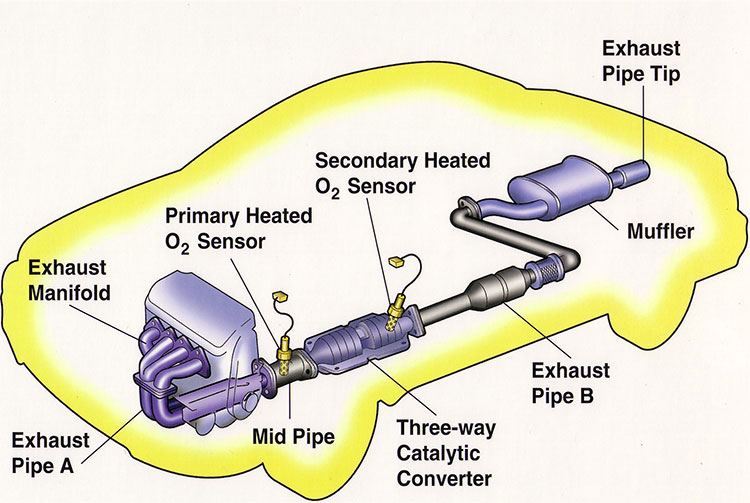
Via mrtireminneapolis.blogspot.com
The exhaust produces small amounts of water due to the combustion of fuel. Water is one of the by-products when you burn hydrocarbons such as gasoline or diesel.
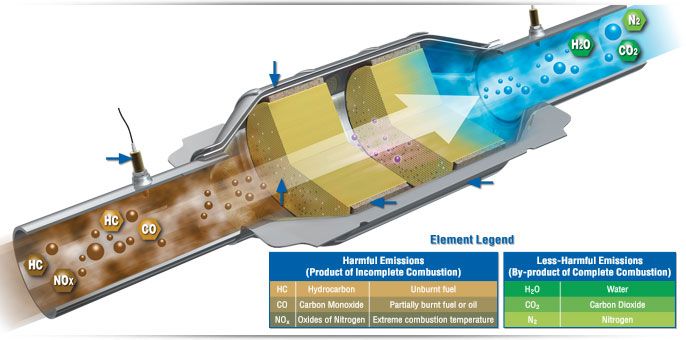
Via logicalcleanairsolutions.com
However, you will only see a few drops of water coming out of your tailpipe when the engine has not yet attained the optimum operating temperature.
Once the optimum temperature is attained, the water will simply vaporize before reaching the end of the tailpipe and escape in gas form.
When you spot drops of water from your tailpipe, there is no cause for alarm.
4. The AC System
The car AC system works in a similar manner to your home HVAC system. Instead of using water, the system uses a refrigerant. When you run the air conditioner, sometimes air conditioning condensate forms, especially in very humid and hot regions.
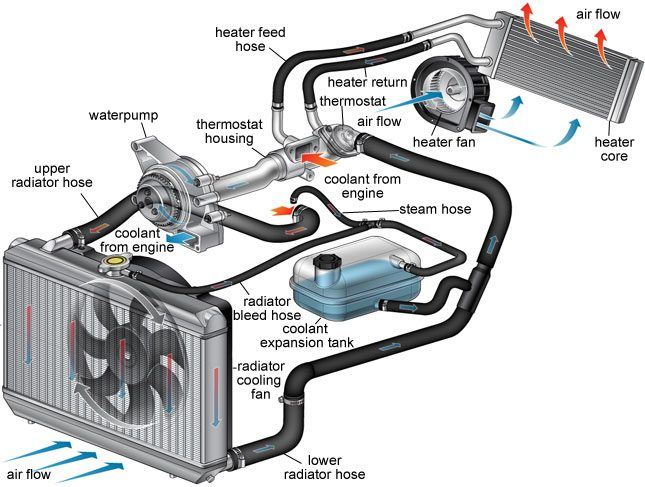
The condensate forms at the cooling coils where the refrigerant evaporates and temperature drops. Due to this temperature drop, humid air condenses around the cooling pipes forming water which might drip underneath your car.
The water normally can be seen just behind the engine compartment and it’s not a lot. This is also no cause for alarm as it does not affect any of the car’s operations.
A Quick Recap
The causes of water leaks in a car are varied and it needs careful inspection to identify the source. There are simple water leaks as outlined above which should be no cause for alarm while there are others, such as a leak from the engine cooling system which require immediate attention.
As soon as you identify the cause of the leak, you can then safely make a decision on whether to replace the faulty part by yourself or take your car to a dealer.
Related Posts
How To Add Coolant To Car? Learn How To Boost Engine Performance And Efficiency
What Does an Intercooler Do? Know How to Improve Fuel Efficiency in Your Vehicle
The Best Synthetic Oil You Can Consider in your Next Scheduled Car Service
Best Oil Filter Wrench 2017 – Reviews and Buyer’s Guide!
Best Ways to Save Money By Learning to Keep Your Fuel Pump From Dying

